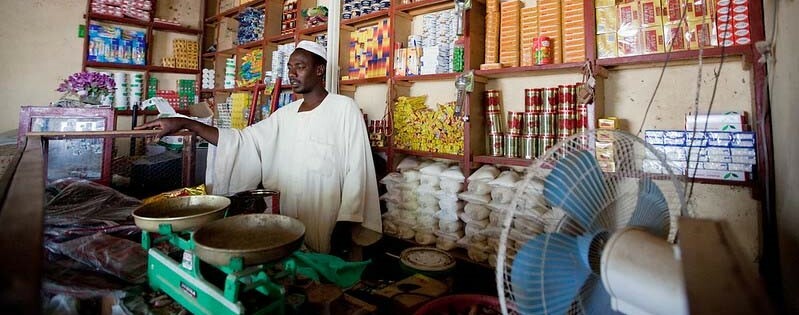A spot-check by Radio Tamazuj in the El Daein market in East Darfur State has revealed a sharp increase in commodity prices at the onset of Ramadan.
There are a few commodities whose prices have dropped slightly. The price of a 50-kilogram bag of Kenana sugar reached 110,000 Sudanese Pounds and then dropped to 100,000 Sudanese Pounds within two days.
Sadiq Ahmed Abdelrahman, head of the Employers’ Union, attributed the price fluctuation to the decrease in purchasing power in the El Daein market.
He attributed the unstable food process to rising transportation costs, which have increased due to fuel and spare parts prices.
“Prices have reached unbearable levels, while price decreases are due to weakened purchasing power,” he said.
Sadiq pointed out that the price fluctuation has been occasioned by the absence of the perennial traders who supply goods to El Daein.
He said such suppliers have since been replaced by itinerant traders who lack the financial war chest to meet the demands of the markets.
“Most El Daein warehouses are empty; they have no goods. At this time in the past, companies used to stockpile sugar, biscuits, and soap in large quantities,” he said.
Several citizens of El Daein complained about the high prices of consumer goods.
Hadi Hassan Sayara, a resident of El Daein, said that prices of commodities in the El Daein market shot up during Ramadan.
“The price of a bag of Kenana sugar reached 110,000 Sudanese pounds, a bag of lentils costs 7,000 Sudanese pounds, a bag of chickpeas costs 8,000 Sudanese pounds, a bag of mille reached 100,000 Sudanese pounds, and sliced meat at 7,000 Sudanese pounds per kilogram,” he said.
Employee Hamdan Aribi described prices of commodities in the El Daein market as “expensive and exceeding the purchasing power of residents”, yet government employees have not been receiving salaries.




